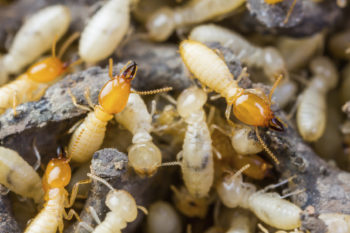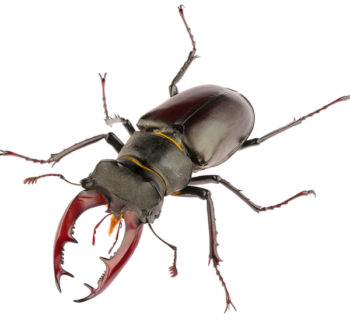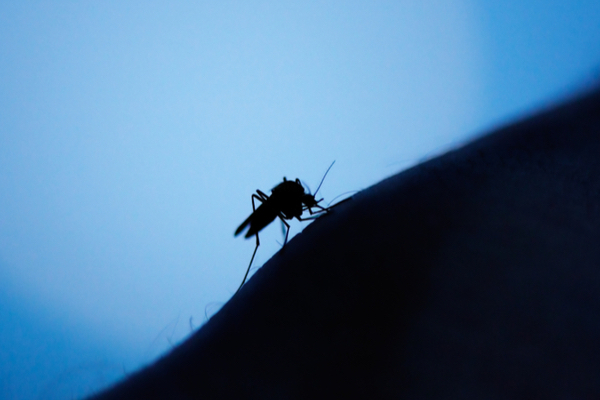
Numerous common household pests are most active during the night. Bed bugs, house centipedes, crickets, and even mosquitoes fall into this category. They emerge in the dark to forage for food, search for mates, and seek sources of moisture. Mosquitoes, in particular, thrive during cooler nighttime temperatures.
It’s no surprise that these “children of the night” can be quite unsettling, especially when they decide to feed on you while you’re trying to sleep. But despite their creepiness, these nocturnal creatures are, in the end, just another type of pest. And like any pest, they can be prevented, controlled, and eliminated. Let’s explore the most common nighttime household pests and what you can do to address them below.
Why Do Bugs Come Out at Night?
Bugs come out at night for a variety of ecological reasons related to temperature, predation, sensory adaptations, food sources, and reproduction. These adaptations allow them to thrive in their respective environments.
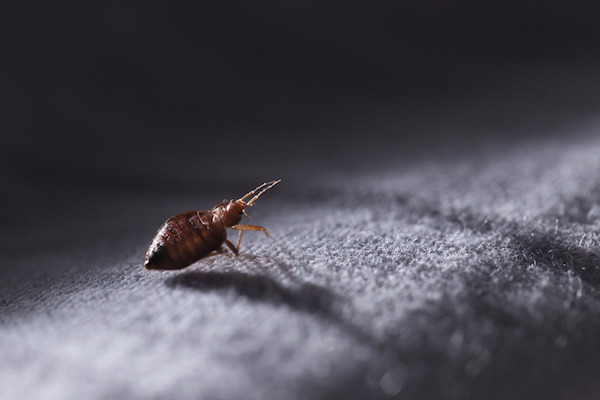
Are Bed Bugs Nocturnal?
No surprise here, right? Yes, bed bugs are nocturnal, which means they come out at night. Bed bugs can neither extract the blood they need quickly nor latch onto people forcefully. Instead, they wait until their prey is immobile–like when they’re sleeping–so they can gorge themselves at their leisure. Bed bugs become more active at night both because it’s when their prey is vulnerable, and because the darkness gives them cover.
How to Protect Yourself From Bed Bugs
We’ve covered preventing bed bugs a couple of times before. The best thing you can do is to make sure you inspect everything you bring home after traveling. Make sure you don’t bring any unwanted hitchhikers home. Wash and clean your bedding and the bed itself frequently, and inspect it for fecal matter or eggs. Heat kills bed bugs, so if you suspect you have them, throw contaminated items in the dryer. If you have an existing bed bug problem, contact your local exterminator for a professional bed bug treatment.
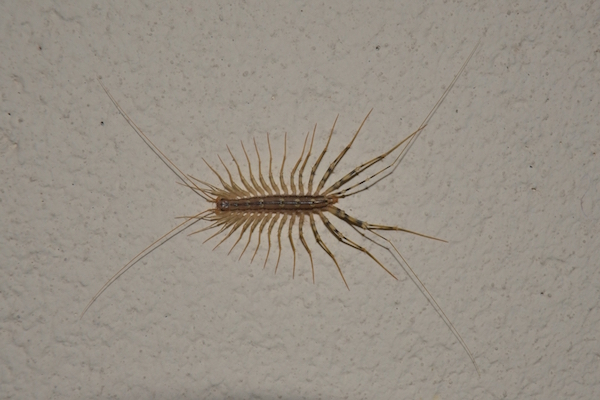
Why Do Centipedes Come Out at Night?
Centipedes are sneaky daytime hiders who venture out at night for hunting. You might spot them in damp spots or kitchens. They’re drawn to humid, dim, cozy places where they can stay moist and soak up warmth.
How to Prevent House Centipedes
Even though they don’t pose any severe harm to humans, they can in fact sting with their two front legs, and they’re just freaky! That’s why preventing them is a good idea.
To keep them away, reduce indoor moisture, close windows at night, and seal off entry points like gaps between utility lines and walls.
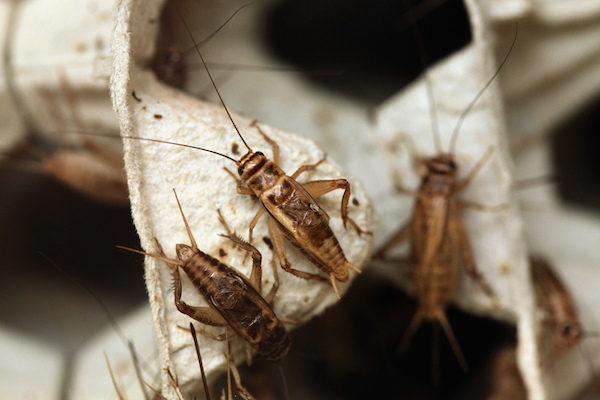
Why Are Crickets Most Active at Night?
The reason why crickets are most active at night is because it offers them favorable conditions for feeding, temperature regulation, and mating while minimizing their exposure to daytime predators. With that said, crickets may sound pleasant when they’re outside, but when they’re inside your walls they sound less than pleasant. Crickets are loud, and they love to start chirping right around the time you want to go to sleep, which can get very annoying. They simply do not belong inside your home!
How to Keep Crickets Away From Your Home
Crickets are attracted to light, heat, humidity, and moisture. Turn off your house lights at night and draw the blinds. Look for and patch up plumbing leaks and other sources of moisture, such as puddling or condensation. Like most other pests, crickets sneak in through gaps in foundations, siding, and window and door frames. Look for places where your noisy foes might squeeze in and seal them up.
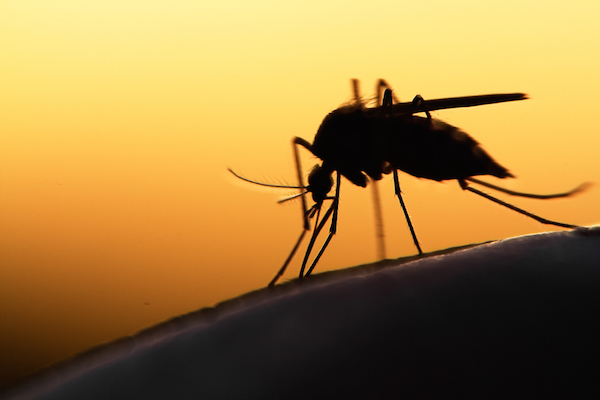
Are Mosquitos Most Active at Night?
Mosquitoes are most active during the evening and at night, making them nocturnal or crepuscular insects. They tend to be most active around dusk and dawn, with their activity increasing during the early evening and into the night.
Several factors contribute to their nighttime activity:
- Temperature: Mosquitoes are cold-blooded insects, and they become more active in the cooler evening hours. Warm temperatures are conducive to their activity.
- Light Sensitivity: Mosquitoes are attracted to light, and their vision is adapted for low-light conditions. They are less active during daylight when the sun is bright.
- Feeding Time: Many mosquito species feed on the blood of warm-blooded animals, including humans. These animals are more accessible when they are active, which often coincides with dusk and nighttime when people are outdoors or asleep.
- Predator Avoidance: Mosquitoes have numerous predators, such as birds and bats, which are more active during the daytime. Being active at night helps mosquitoes avoid some of their natural enemies.
It’s important to note that while mosquitoes are more active at night, there are some species that are active during the day. The behavior of mosquitoes can also be influenced by environmental factors, such as temperature and humidity.
How You Can Prevent Mosquitos in Your Home
To prevent mosquitoes from invading your home, take a few proactive measures. Ensure that all windows and doors have properly fitted screens to keep them out. Remove any standing water sources around your property, as mosquitoes lay their eggs in stagnant water. Using mosquito nets over beds and applying insect repellent on exposed skin can help reduce bites indoors. Also, consider using mosquito traps or citronella candles to deter these pests from entering your living spaces. Regularly maintaining your yard, keeping it well-trimmed and free of debris, can also minimize mosquito breeding grounds.
Other Common Insects That Come at Night
In Michigan, as in many other regions, you can find a variety of common nocturnal insects. Here’s a list of some nocturnal insects you might encounter in Michigan:
- Moths: Michigan is home to numerous moth species, and they are particularly active at night, often drawn to outdoor lights.
- Fireflies: Fireflies are a familiar sight in Michigan during the summer evenings, with their bioluminescent displays.
- Mayflies: Mayflies are common near Michigan’s freshwater bodies, and their adults are active in the evening.
- Katydid: These relatives of crickets are known for their distinctive calls and are often heard at night.
- Nocturnal Ants: Some ant species in Michigan are more active at night, like pavement ants and field ants.
- Beetles: Various beetle species can be found in Michigan, and some are nocturnal, including ground beetles and June beetles.
- Stoneflies: Stoneflies can be found near clean, cold freshwater streams and rivers in Michigan, and they are active at night.
- Earwigs: Earwigs are nocturnal insects that seek shelter during the day and come out at night to forage.
- Silverfish: These small, wingless insects are often active at night and can be found in dark, damp areas.
- Nocturnal Termites: Michigan has termite species that are known to be active at night.
Want to Protect Yourself and Your Home from Nocturnal Pests? We Can Help!
If you’re dealing with nocturnal pests in Michigan and want to safeguard your home against these bothersome intruders, the pest control experts at Griffin Pest Solutions can help. Our experienced pest control experts are well-versed in addressing a wide range of nighttime pests, ensuring you can enjoy peaceful, pest-free* nights. Call us today for a free no-obligation quote.
Ask us about PestFree365+, our preventative pest control program!



